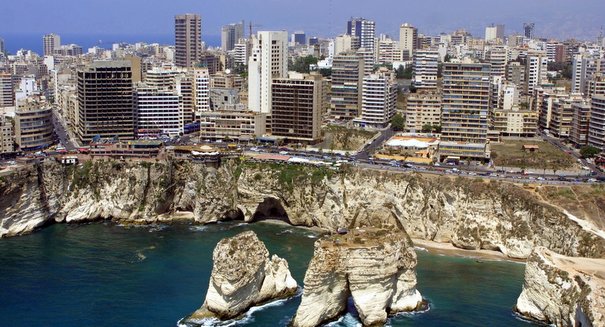Last week's visit to Lebanon by Saudi Arabia's King Abdullah and Syria's President Bashar al-Assad signaled a new level of cooperation between rivals who were fighting a proxy war against each other in Lebanon only a few years ago. Coming together to try to assuage heightened tensions over the looming results of the international tribunal investigating the assassination of former leader Rafik Hariri, the two leaders met with Lebanon's president, prime minister, and parliamentary speaker.
By showing strong support for the current coalition government, the meeting was significant in its own right. And the inclusion of Syria reflects a renewed role for Damascus in Lebanon-albeit one Saudi Arabia hopes to keep under control. The meeting followed a warming in Syria-Saudi relations, but it's still questionable whether Syria will use its leverage in Lebanon to calm tensions or simply back Hizbollah as it has before.
Approval for the meeting from Egypt, the United Arab Emirates, and Turkey signaled a broader regional understanding about the importance of the potential crisis and their desire to preserve Lebanon's stability. The position of Iran remained unclear: it could join with many of Lebanon's neighbors and work to minimize the political fallout from the tribunal, or it could encourage Hizbollah to further escalate tensions.
While the Saudi-Syrian visit was a positive sign for a country too frequently home to its neighbors' battles, there was no real progress on the issue that threatens to tear Lebanon apart-the special tribunal.
The tribunal is expected to release its findings in September, and rumors are circulating that the international investigation will implicate Hizbollah. The issue of Hariri's assassination has created major divides in Lebanon over the last five years and these findings risk internal turmoil.
Hizbollah leader Sayed Hassan Nasrallah has pre-emptively rejected the tribunal as an Israeli plot and accused Israel of being behind Rafik Hariri's assassination. Nasrallah is pushing Prime Minister Saad Hariri to distance himself and his government from the tribunal.
But Hariri is holding firm, maintaining the government's original position of respect and support for the tribunal. On the other hand, Hariri has signaled that he will be flexible in his response to the findings. He apparently proposed to Nasrallah that if the tribunal indicts Hizbollah operatives, Hariri would be willing to say that the accused were operating as rogue agents-allowing Hizbollah a way out. But Nasrallah flat out rejected the offer.
While the Abdullah-Assad visit temporarily relieved tensions, the contradictory positions of Nasrallah and Hariri will only escalate.
Pressure will mount on Hariri and his Saudi backers to refute the tribunal before its conclusions are released. Hizbollah, backed by Syria and Iran, believe that if the government denounces the tribunal, the Lebanese and Arab public will not give credibility to its conclusions and the government will not need to make any arrests.
If the government does refute the tribunal, it is likely that the indictment against Hizbollah will have much the same effect as the International Criminal Court's charge against Sudanese president Omar Bashir, who still comfortably runs his country and is welcomed in most Arab capitals.
But if Hariri holds his ground, Hizbollah is likely to use the full range of tools at its disposal to pressure the government-even encouraging protests that could escalate into street fighting, as seen in 2008.
Lebanon's neighbors are weighing in as well. Syria has alleged from the onset that the tribunal is biased and has come out publicly against it. President Assad has apparently even urged King Abdullah to use his influence to stop the tribunal. The Saudi king has remained fairly quiet about the tribunal, but has indicated that the stability of Lebanon is of paramount importance.
Although the summit brought a moment of internal calm, it failed to bridge the divide and it's unclear whether a compromise can be reached in time. The fear is that tensions beginning at the political level will degenerate into street protests and more serious risks. The issue of Hariri's assassination has determined major shifts in Lebanese and regional politics since 2005-and it's unlikely that the indictments of the 5-year international investigation will pass without incident.





